دنیا بازیچه یهود
نویسنده:
سیدمحمد حسینی شیرازی
مترجم:
سید هادی مدرسی
امتیاز دهید
قوم یهود به بنیاسرائیل نیز معروف هستند یعنی فرزندان اسرائیل.
اسرائیل کیست؟
اسرائیل لقب حضرت یعقوب فرزند اسحاق است.
حضرت یعقوب دارای دوارده فرزند بود که یهود از نام چهارمین فرزند ایشان یعنی یهوذا گرفته شده است.
یهوذا و برادرانش به اتفاق پدرشان یعقوب در کنعان زندگی میکردند، البته پس از توطئه به قتل رساندن حضرت یوسف که یهوذا نیز در آن دست داشت، برادران یوسف فلسطین را به قصد مصر ترک کردند.
این مهاجرت زمانی صورت گرفت که مصر مملکتی پرجمعیت و با ثروت بهشمار میرفت به همین دلیل است که: حاکم چنین مملکتی گوئی بر کل جهان حکومت میکند... .
اسرائیل کیست؟
اسرائیل لقب حضرت یعقوب فرزند اسحاق است.
حضرت یعقوب دارای دوارده فرزند بود که یهود از نام چهارمین فرزند ایشان یعنی یهوذا گرفته شده است.
یهوذا و برادرانش به اتفاق پدرشان یعقوب در کنعان زندگی میکردند، البته پس از توطئه به قتل رساندن حضرت یوسف که یهوذا نیز در آن دست داشت، برادران یوسف فلسطین را به قصد مصر ترک کردند.
این مهاجرت زمانی صورت گرفت که مصر مملکتی پرجمعیت و با ثروت بهشمار میرفت به همین دلیل است که: حاکم چنین مملکتی گوئی بر کل جهان حکومت میکند... .
آپلود شده توسط:
shytin_cupid
1389/04/30
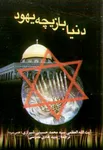
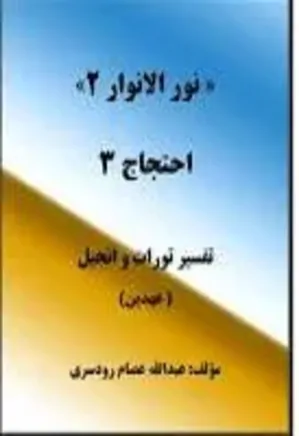
(1)1.webp)

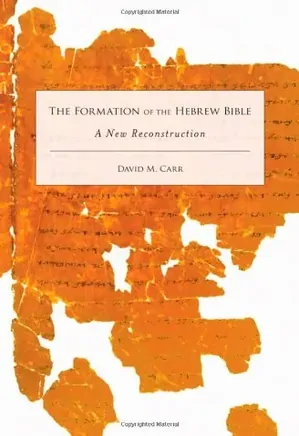
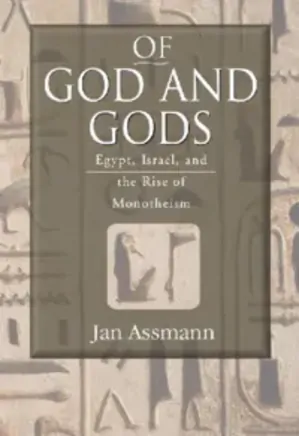
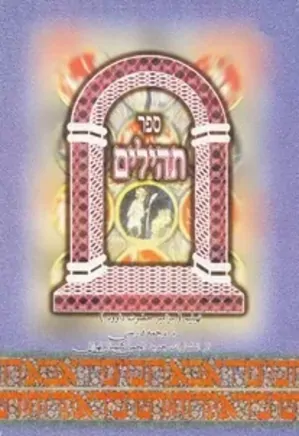
دیدگاههای کتاب الکترونیکی دنیا بازیچه یهود
Chapter 6
The Wheel Turns
1 That night the king couldn't sleep, so he told them to bring the book of records, the chronicles, and to read them to the king.
2 They found an entry in the book describing how Mordechai had reported that Bigsan and Seresh, two officers of the king's night guards, had attempted to harm King Achashvairosh.
3 The king asked, "What reward was given to Mordechai for this?" The king's attendants answered, "Nothing was done at all."
4 The king asked, "Who is in the courtyard?" Haman had arrived at the king's outer courtyard to tell the king to hang Mordechai on the gallows he had made for him.
5 The king's attendants said, "Haman has suddenly shown up in the courtyard." Said the king, "Enter!"
6 Haman entered, and the king said to him, "What should be done with a man that the king wants to honor?" Haman said to himself, "Who would the king want to honor more than me?"
7 So Haman said to the king, "For the man that the king wants to honor,
8 "They should bring the royal clothing that only the king wears, and the royal horse that only the king rides, which is the horse that wears a royal crown.
9 "The clothes and horse should be given to one of the king's ministers, a nobleman, who should dress the man the king wants to honor, and lead him through the streets on the royal horse. He should call out, 'This is what is done to the man the king wishes to honor!'"
10 The king said to Haman, "Hurry up, take the clothes and horse just like you said, and do all that to the Jew Mordechai who sits at the king's gate. Do not leave out a single thing you mentioned!"
11 Haman took the clothes and horse, he dressed Mordechai, and he led him through the streets of the city, and he called out, "This is what is done to the man the king wishes to honor!"
12 Mordechai returned to the king's gate, but Haman hurried home, depressed, and with his head covered.
13 Haman told his wife Zeresh and his friends what had happened. His advisors and his wife responded to him, "Since Mordechai is a Jew, now that you have begun to lose to him you will never get the upper hand. You will lose to him entirely."
14 While they were still speaking with him, the king's attendants arrived, and they rushed to bring Haman to the banquet that Esther was making.
ادامه دارد.
Chapter 5
Esther Approaches the King
1 On the third day of the fast, Esther dressed in her royal clothes, and she stood at the king's inner court, facing the king's apartment. The king was sitting on his royal throne in the palace, facing the entrance.
2 When the king saw Queen Esther standing in the court, he was pleased, and he extended to Esther the golden scepter he was holding. Esther approached and touched the tip of the scepter.
3 The king said to her, "What do you wish, Queen Esther? What is your request? I would give you up to half the empire."
4 Esther said, "If it please the king, could the king and Haman come today to a banquet I am making for him?"
5 The king said "Hurry Haman up to do as Esther said." So the king and Haman went to the banquet that Esther had made.
6 At the banquet, over drinks, the king asked Esther, "Whatever your request, you will receive it. Whatever you desire, up until half the empire, it shall be done!"
7 Esther answered, "About my request and desire:
8 If the king likes me, and if it pleases the king to grant me my request and desire, could the king and Haman come to the banquet I shall make for them tomorrow? Tomorrow I will do as the king has said [and I will reveal my request and my desire]."
9 Haman left that day happy, and feeling good, but when he saw Mordechai at the king's gate refuse to even stand or move at all for him, Haman got very angry at Mordechai.
10 Haman controlled himself until he got home, where he called for his wife and friends.
11 Haman talked with them about his glorious wealth and his many children, and how the king had promoted and elevated him above all the other ministers and servants of the king.
12 Haman said, "In fact, Queen Esther invited no one else to the banquet she made for the king, except me! And tomorrow, too, she has invited me to be there with the king.
13 "But none of this means anything to me as long as I see that Jew Mordechai sitting at the king's gate."
14 His wife Zeresh, along with all his friends, advised him, "Make a fifty-cubit high gallows. In the morning tell the king to hang Mordechai on it. Then you can go with the king to the banquet, happy." Haman liked the idea, so he made the gallows.
ادامه دارد.
The Book of Esther
Chapter 4
Mordechai Calls for Repentance
1 But Mordechai knew of all that had happened, and he tore his clothes and put on sackcloth and ashes. He went to the center of the city and wailed a loud and bitter cry.
2 He went up until the king's gate, because it was forbidden to enter the king's gate while wearing sackcloth.
3 In every province that the king's decree reached there was great mourning among the Jews, with fasting, crying and wailing; many lay in sackcloth and ashes.
4 Esther's maids and attendants came and told her, and the queen became very upset. She sent clothing with which to clothe Mordechai, to replace his sackcloth, but he would not accept them.
5 Esther called Hasach, one of the king's chamberlains whom he had designated to serve her, and she ordered him to go to Mordechai and find out what he was doing and why.
6 Hasach went out to Mordechai, to the city street in front of the king's gate.
7 Mordechai told him everything that had happened, about the allotment of money Haman had said he would give to the king's treasury for the eradication of the Jews.
8 He gave him a copy of the decree that had been circulated in Shushan, which contained the words "to destroy them," to show Esther, and to command her to go to the king to beg and plead to him for her people.
9 Hasach went and told Esther what Mordechai had said.
10 Esther responded to Mordechai through Hasach:
11 "The servants of the king and the people of the provinces all know that any man or woman who comes to the king in the inner court without being summoned is sentenced to death by the law, unless the king extends his royal scepter to him, granting him life. And the king has not called for me for thirty days now."
12 They told Mordechai Esther's message.
13 Mordechai sent back word to Esther: "Don't imagine that you alone among the Jews will escape to the king's palace, and that this will save your life.
14 "Even if you are silent now, the Jews will get relief and rescue some other way, and you and your father's house will be lost. And who knows? Maybe it was for just such an occasion that you were made queen!"
15 Esther sent back word to Mordechai:
16 "Go and gather all the Jews in Shushan, fast for me: do not eat or drink for three days and nights. My girls and I will also fast. Then I'll go to the king -- against the law -- and if I am killed, I will be the only one killed."
17 Mordechai left and did all that Esther had commanded him.
ادامه دارد.
Chapter 3
Five years Later
1 After those events, King Achashvairosh raised the salary of Haman son of Hamdoso, a descendant of Agag, and promoted him, raising his position above those of all the other ministers.
2 All the king's servants in the king's court would kneel and bow in religious worship to Haman, because the king had commanded it, but Mordechai would neither bow nor kneel.
3 The king's servants in the king's court asked Mordechai, "Why do you disobey the king?"
4 Day after day they would say this to him, and he wouldn't listen, so they told Haman, to see if Mordechai would stick to his word, because he had explained to them that as a Jew he was forbidden to do it.
5 Haman saw that Mordechai would not kneel and bow to him, and he grew angry.
6 He was disdainful of killing only Mordechai, once they told him Mordechai's nationality, so he resolved to destroy all the Jews, Mordechai's nation, throughout Achashvairosh's entire empire.
7 In the first month, Nisan, in the twelfth year of King Achashvairosh's reign, Haman drew a pur, a lottery, which chose a day in the twelfth month, Adar.
The Plot to Kill the Jews
8 Haman said to King Achashvairosh, "There is a nation scattered and separated among the nations throughout your empire. Their laws are different than everyone else's, they do not obey the king's laws, and it does not pay for the king to tolerate their existence.
9 "If it pleases the king, let a law be written that they be destroyed, and I will pay to the executors ten thousand silver Kikar-coins for the king's treasury."
10 The king removed his signet ring from his hand and gave it to Haman son of Hamdoso the Agagite, persecutor of the Jews.
11 The king said to Haman, "Keep the money, and do whatever you want with that nation."
12 On the thirteenth day of the first month, they convened the king's scribes and had them write whatever Haman ordered, to the king's officers and governors of each province, and to all the ministers of each nation; each province in its alphabet, and each nation in its language, and each letter was written and sealed with the king's ring.
13 The letters were sent with runners to each province, stating clearly the decree to destroy, kill, and eradicate all the Jews, young and old, children and women, in one day, on the thirteenth day of the twelfth month, Adar, and to pillage their property.
14 The text of the letter also contained a public decree that was to be posted in each province, declaring simply that everyone should be ready to wage war on that day.
15 The runners left, rushed by the king's command, and the public decree was posted in Shushan Capital. The king and Haman sat down to drink, and the Jews in the city of Shushan were unaware of what it meant.
ادامه دارد.
13 And that's how they came before the king. In addition, each woman was given whatever she wanted to take with her from the harem to the king's palace.
14 She would arrive in the evening, and she would return in the morning to the second harem, under the direction of the eunuch Shaashgaz, guardian of the concubines. She would not return to the king unless the king wanted her and requested her by name.
15 When the time came for Esther, daughter of Avichayil the uncle of Mordechai, who had adopted her as his daughter, to come before the king, she made no requests at all, and took only what the eunuch Hegai, guardian of the women, told her to take. Esther pleased everyone who met her.
16 Esther was taken to King Achashvairosh at his palace in the tenth month, Teves, in the seventh year of his reign.
17 The king loved Esther more than all the women, and she pleased him more than all the virgins, so he set a royal crown on her head, and he made her queen instead of Vashti.
18 The king made a big feast for all his ministers and servants, called Esther's Feast, and he declared a tax reduction for the provinces, and gave royal gifts.
19 Then they gathered virgins a second time. At that time, Mordechai was appointed to sit with the ministers at the King's Gate,
20 And Esther still did not reveal her nationality or race, as Mordechai had ordered her. Esther obeyed the words of Mordechai just as she did when he was raising her.
The Plot Against the King
21 Once, while Mordechai was sitting at the king's gate, Bigsan and Seresh, two officers of the king's night guards, became angry at the king, and they conspired to poison the king.
22 Mordechai found out about it, so he told Queen Esther, and Esther told it to the king, citing Mordechai as her source.
23 They investigated the matter, and it was verified, and they were both hanged on gallows. It was then recorded in the royal book of chronicles.
ادامه دارد.
Chapter 2
The Search For A New Queen
1 After these events, King Achashvairosh's anger abated, and he remembered Vashti and what had happened to her.
2 The king's personal servants said, "Let them search for beautiful young virgins for the king.
3 "The king should appoint officials in each of the provinces of his empire to gather all the beautiful young virgins at the harem in Shushan Capital, under the administration of the king's eunuch Hegei, guardian of the women, and give them cosmetics.
4 "And the woman that the king likes can rule instead of Vashti." The King liked this idea, so he did it.
Mordechai and Esther
5 There was a Jewish man in Shushan Capital whose name was Mordechai, son of Yair, son of Shim'i, from the family of Kish, from the tribe of Benjamin.
6 He had been exiled from Jerusalem with the exiles who had been expelled with Yechonyah king of Yehudah when Nevuchadnezzar king of Babylon had banished them.
7 He had raised his cousin Hadassah after she lost her parents. The Gentiles knew her as Esther. She was a beautiful woman, with pleasant features, and when her parents died Mordechai adopted her.
8 When word of the king's decree became known, and many women were being gathered at Shushan Capital under Hegai's direction, Esther was taken forcibly to the palace, to Hegai, guardian of the women.
9 He liked the young woman, and he approved of her, so he rushed to give her cosmetics, food, and the seven maids due her from the palace, and he transferred her and her maids to the best part of the harem.
10 Esther did not reveal her race or nationality, because Mordechai had ordered her not to.
11 Every day Mordechai would walk near the courtyard of the harem to find out how Esther was doing and what was happening with her.
12 The line of women proceeding to the king progressed, as each woman underwent the usual twelve-month treatment for women, which involved six months' application of oil of myrrh and six months of perfumes and feminine cosmetics.
ادامه دارد.
Memuchan's Advice
16 Memuchan said to the king and the ministers, "When Queen Vashti was disobedient, she hurt not only the king but also all the ministers of all the nations in all of the provinces of King Achashvairosh's empire.
17 "When word of the Queen's behavior gets out to all the women, they will treat their husbands with less respect, pointing out that even King Achashvairosh ordered Queen Vashti to come to him and she did not come.
18 "This very day, the wives of the ministers of Persia and Media who have heard what Queen Vashti did, will bring up this incident to the ministers of the king, and that will cause a great deal of scandal and quarreling.
19 "If it pleases the king, let him issue a royal edict that a new immutable law be written into the laws of Persia and Media to the effect that Queen Vashti may never again come to King Achashvairosh, and that her royal position will be given to someone else more suitable.
20 "Let the King's decree be posted throughout the entire empire, even though it is very large, and then all the women will respect their husbands, regardless of their status."
21 The king and the ministers liked this idea, so the king did as Memuchan advised.
22 He sent scrolls to all the king's provinces, each scroll written in the alphabet and language of the province to which it was sent, stating that the man is legally the master of his own home, and that everyone in the household must speak the man's native language.
ادامه دارد.
The Queen Pretends to be Proper and Decent
9 Queen Vashti also made a feast, for the women, in the royal house of King Achashvairosh.
10 On the seventh day, when the king was under the influence of the wine he had been drinking, he ordered Mehuman, Bizisa, Charvonah, Bigsa, Avagsar, Zesar and Charcas, the seven attendants who served King Achashvairosh,
11 to bring Queen Vashti, wearing only her royal crown, before the king, to show the nations and the ministers her beauty, for she was very beautiful.
12 The Queen refused to come at the word of the king as brought to her by the attendants, and the king grew angry, and his temper burst.
The King's Reaction
13 The King spoke to his advisors, who were familiar with established precedents, because it was the king's custom to confer with those who knew law and custom.
14 Those closest to him were Karshina, Shaisar, Admoso, Tarshish, Meres, Marsina, and Mimuchan, seven ministers of Persia and Media who were allowed in the presence of the king and were the highest ranking officials in the empire.
15 The question was: what does the law say should be done to Queen Vashti for not obeying the command that King Achashvairosh conveyed to her through the attendants?
ادامه دارد.
The Book of Esther
Translated by Mordecai Housman
© Copyright 2004
Chapter 1
The King's Party
1 It was in the days of Achashvairosh -- this was the Achashvairosh who reigned from Hodu to Cush, a total of one hundred and twenty seven provinces.
2 At that time, King Achashvairosh established his royal throne in Shushan, the capital (of the Persian Empire).
3 In the third year of his reign he made a party for all his ministers and servants. The army of Persia and Media, and the nobles and ministers of the provinces attended.
4 His purpose was to display the wealth of his great empire and the riches he inherited through his prestigious stature for many days, one hundred and eighty days.
5 After that, the king made a seven-day party in the garden enclosure of the king's palace, for everyone in Shushan Capital; everyone was treated equally.
6 There were exquisite white cotton and royal-blue wool hangings, embroidered with cords of fine linen and purple wool, suspended over silver rods and marble pillars; there were gold and silver couches, on platforms of green, white, shell, and onyx marble.
7 The drinks were served in gold goblets -- no two goblets were alike; royal wine was in abundance, as befits the hand of the king.
8 The drinks were served according to the law: no one was forced, because the king had instructed his officers to fulfill the wishes of each guest.
ادامه دارد.
سلام
فرموده اید:
1- ... و در جای جای نوشته ی من کلماتی از این کتاب به چشم می خورد .(اگر قصد دارید از این کتاب گزارش کنید- اشاره به کلمات کفایت نمی کند. به مطالب مطروحه در این کتاب مقدس یهودیان و مسیحیان بپردازید تا موضوع مشخص شود)
فرموده اید:
2- شاید شما با تعصب و یهودی ستیزی خوانده اید و من بی طرفانه .(از تعریف از خودتان و انگ تعصب که به بنده زده اید متشکرم. یقین دارم شما نیز از خودتان بابت این رویکرد روشنفکرانه متشکر هستید)
فرموده اید:
3- نوشته ی من به صورت کامل از تومار استر نقل شده ولی نوشته های شما همواره بدون سند و با دید ارزشی گفته شده (باز هم همان تشکر مذکور در بند دوم)
ظاهراً لازم است بنده کمک تان کنم تا مطالب کتاب استر را به خاطر بیاورید.
برای تان عین متن انگلیسی کتاب استر را خواهم گذاشت.
بنده را به چیزی متهم نفرمایید چون متن فارسی اش را به صورت نرم افزاری ندارم (hard copy دارم که وقت تایپ آن را ندارم).
موفق باشید.
;-)